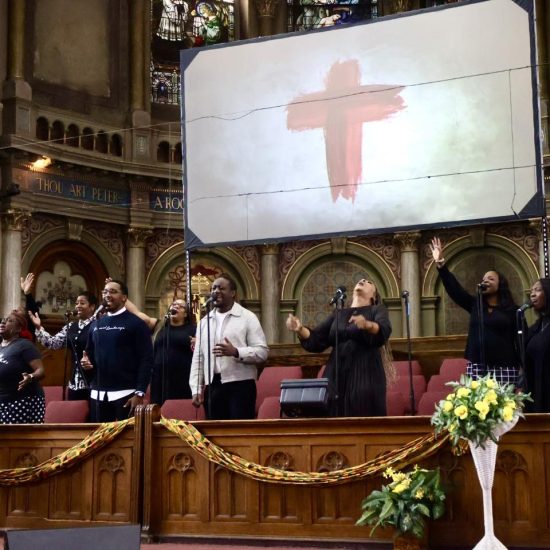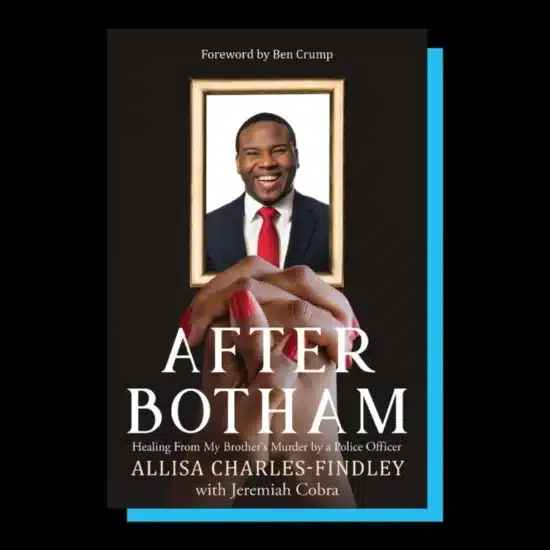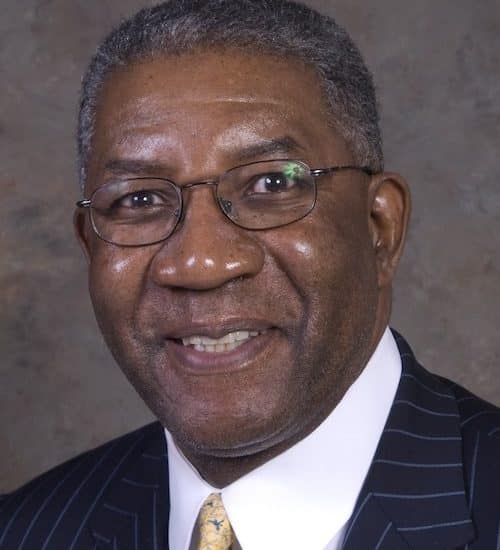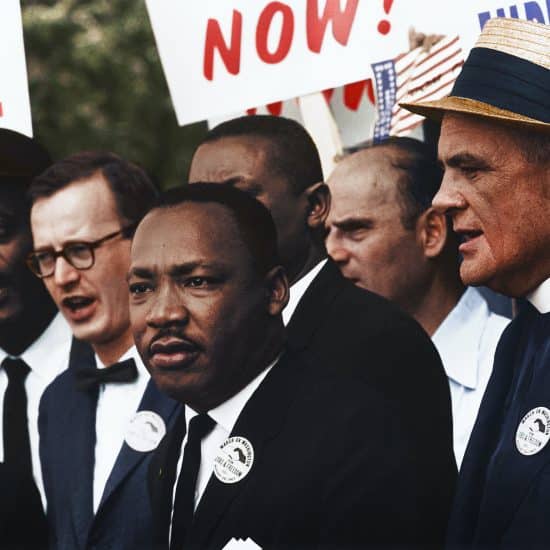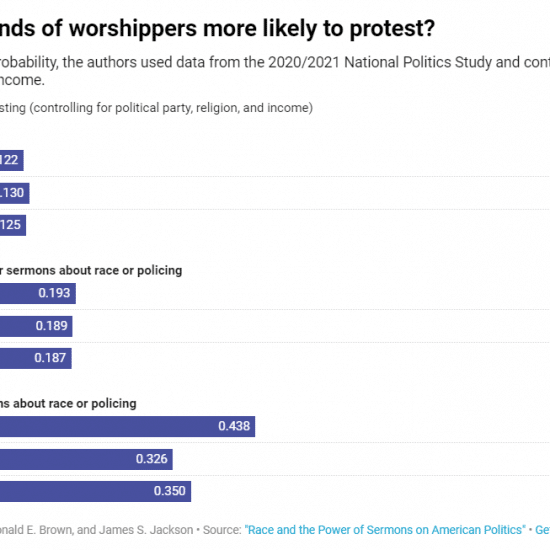WASHINGTON (RNS) Evangelical Christian leaders are spearheading a campaign for criminal justice reform, calling for equitable punishment, alternatives to incarceration and a different take on the “tough on crime” language of the Trump administration.
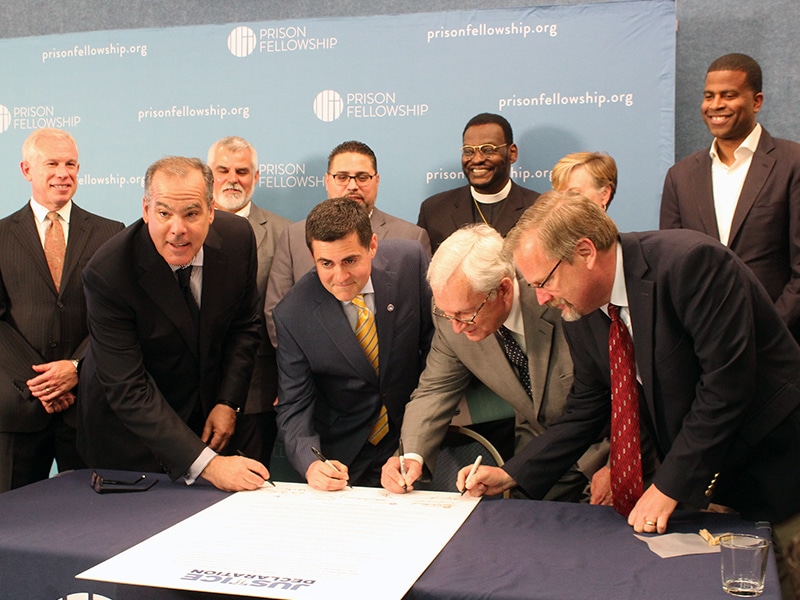 Leaders of evangelical organizations sign the “Justice Declaration,” a statement by Christian leaders on criminal justice reform, in Washington, D.C., on June 20, 2017. Left to right, Prison Fellowship Ministries President James Ackerman, Southern Baptist ethicist Russell Moore, National Association of Evangelicals President Leith Anderson, and David Carlson of the Colson Center for Christian Worldview. RNS photo by Adelle M. Banks“Our country’s overreliance on incarceration fails to make us safer or to restore people and communities who have been harmed,” said James Ackerman, CEO of Prison Fellowship Ministries, at a Tuesday (June 20) news conference at the National Press Club.
Leaders of evangelical organizations sign the “Justice Declaration,” a statement by Christian leaders on criminal justice reform, in Washington, D.C., on June 20, 2017. Left to right, Prison Fellowship Ministries President James Ackerman, Southern Baptist ethicist Russell Moore, National Association of Evangelicals President Leith Anderson, and David Carlson of the Colson Center for Christian Worldview. RNS photo by Adelle M. Banks“Our country’s overreliance on incarceration fails to make us safer or to restore people and communities who have been harmed,” said James Ackerman, CEO of Prison Fellowship Ministries, at a Tuesday (June 20) news conference at the National Press Club.
Joined by black, white and Hispanic officials of evangelical organizations, he introduced the “Justice Declaration” that has been signed by close to 100 religious leaders from a wide range of Christian denominations.
“The Church has both the unique ability and unparalleled capacity to confront the staggering crisis of crime and incarceration in America,” the declaration reads, “and to respond with restorative solutions for communities, victims, and individuals responsible for crime.”
The leaders later presented their declaration to Republican leaders, such as House Speaker Paul Ryan and Senate Judiciary Committee Chairman Chuck Grassley, in hopes of gaining bipartisan support for changes in federal law.
In a May memorandum to federal prosecutors, Attorney General Jeff Sessions established a stricter policy on charges and sentencing, saying they “should charge and pursue the most serious readily provable offense,” and consider using mandatory minimum sentences.
Ackerman said Prison Fellowship supports sentencing guidelines but thinks mandatory sentences are “a big mistake.”
He was joined at the news conference by leaders with testimonies of how churches helped formerly incarcerated people rehabilitate themselves and become productive citizens.
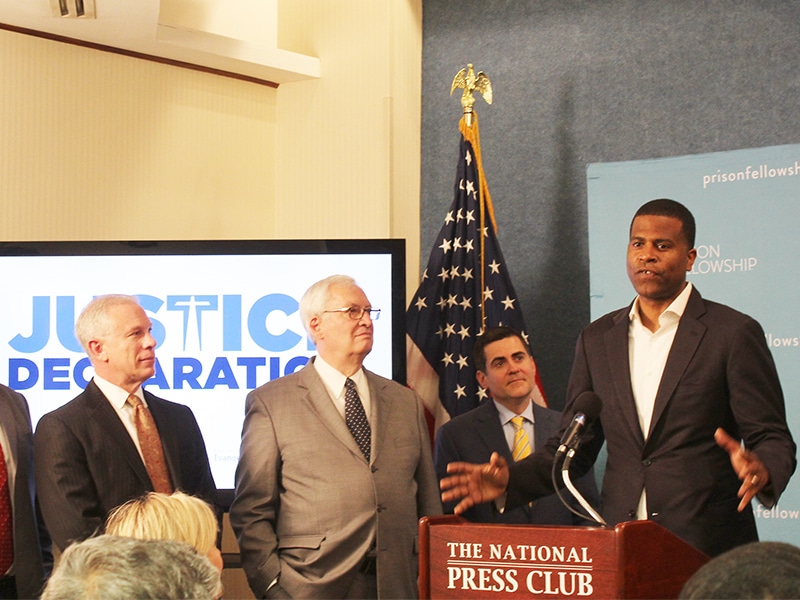 Dimas Salaberrios, right, president of the Concerts of Prayer Greater New York, speaks at a news conference about the “Justice Declaration,” a statement by Christian leaders on criminal justice reform, in Washington, D.C., on June 20, 2017. RNS photo by Adelle M. BanksDimas Salaberrios, president of the Concerts of Prayer Greater New York, told of how church members once vouched to a judge about his transformation after he escaped from authorities when he was a drug dealer. The judge pardoned him.
Dimas Salaberrios, right, president of the Concerts of Prayer Greater New York, speaks at a news conference about the “Justice Declaration,” a statement by Christian leaders on criminal justice reform, in Washington, D.C., on June 20, 2017. RNS photo by Adelle M. BanksDimas Salaberrios, president of the Concerts of Prayer Greater New York, told of how church members once vouched to a judge about his transformation after he escaped from authorities when he was a drug dealer. The judge pardoned him.
“I’m living proof that when you grab somebody out of the pits of hell and you turn their life around that they can be great contributors to society,” he said.
National Association of Evangelicals President Leith Anderson challenged churches to do more than sign the declaration but also take action steps to address racial inequities and work for alternatives such as drug courts and mental health courts to keep people out of prison.
Thirteen percent of Americans are African-American but close to 40 percent of U.S. prisoners are black.
“What if all of our churches were to adopt one incarcerated person?” he asked. “What if all of our churches would service one family where a family member is incarcerated? What if all of our churches would care for one victim?”
The declaration, and a related 11-page paper on how the church can respond to crime and incarceration, were spearheaded by evangelical organizations: Prison Fellowship, the NAE, the Southern Baptist Convention’s Ethics and Religious Liberty Commission and the Colson Center for Christian Worldview.
But signatories on the declaration include a wider range of Christian leaders, such as Episcopal Church Presiding Bishop Michael Curry, Bread for the World President David Beckmann and Bishop Frank Dewane, who chairs the U.S. Conference of Catholic Bishops’ Committee on Domestic Justice and Human Development.
Despite the unified voices, a new Barna Group poll commissioned by Prison Fellowship found that 53 percent of practicing Christians — Christians who have attended a church service at least once in the past month and describe their faith as very important — agree with the statement: “It’s important to make an example out of someone for certain crimes, even if it means giving them a more severe punishment than their crime deserves.”
Restorative justice proponents said the finding indicates they have more work to do.
“We as a church are not recognizing that disproportional punishment — that is, giving someone more than they deserve — is not consistent with our values and certainly will not help us advance the hope of a restorative justice system we all seek,” said Ackerman.


